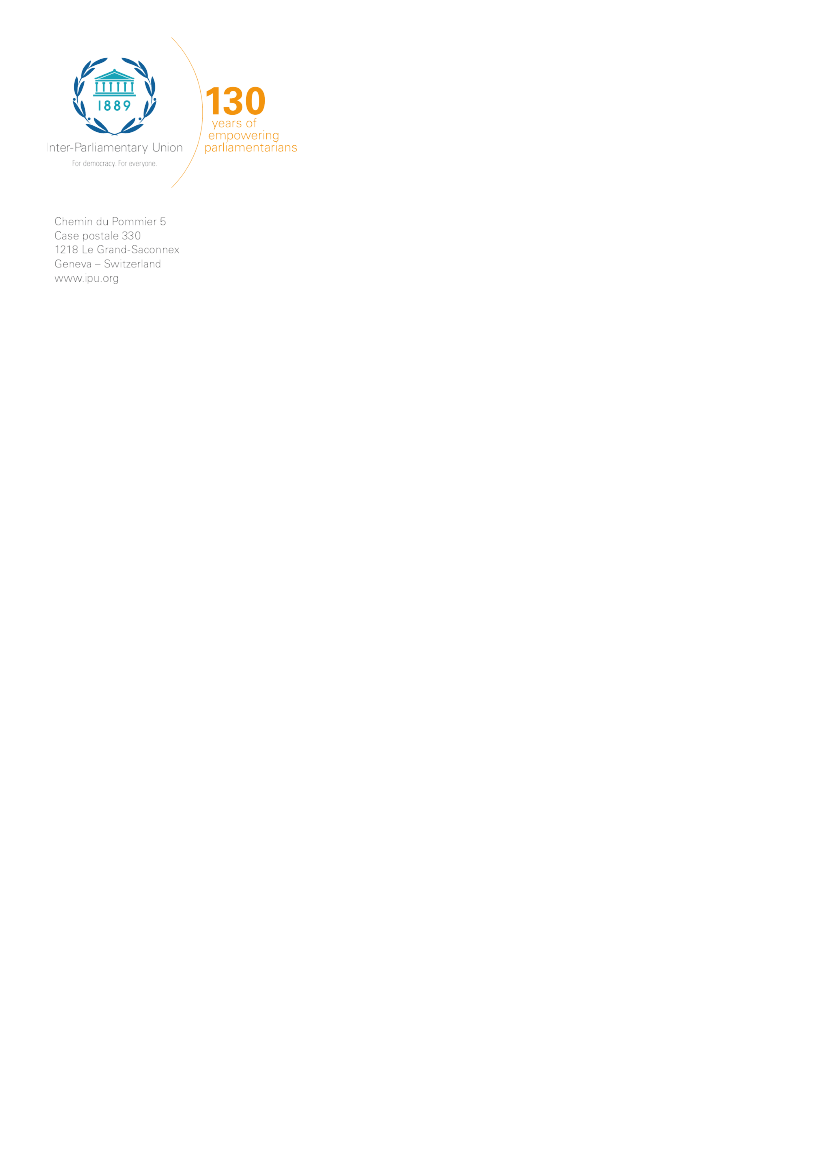
Gender and COVID-19: A guidance note
for parliaments
In times of pandemic, women and men are affected differently. Failing to take on
board gendered dimensions of the emergency response will exacerbate existing and
persisting inequalities and create new ones. This could amplify the crisis and increase
its current and future impact and its costs for women and for society as a whole. The
Ebola outbreak from 2013 to 2016 and the Zika outbreak in 2015 and 2016 had
countless impacts on women’s lives as they became infected through their carer roles,
died as a result of the redeployment of resources away from women’s reproductive
health and had little say in the policy responses.
Twenty-five years after the adoption of the Beijing Platform for Action, gender equality
and women’s rights cannot afford setbacks and should not become victims of COVID-
19. On the contrary, the response to COVID-19 cannot be deemed efficient and
sustainable if it is not built on gender-responsive decisions and actions.
COVID-19 and women
Women are the mainstay of the essential services needed to withstand and cope with
the pandemic. Some 70 per cent of the health workforce caring for those affected is
made up of women. Women are also caring for those affected as heads of household
and working in grocery stores and pharmacies. This means that women are on the
front line and at high risk of infection.
The crisis and some of the measures to contain or respond to it can also put women's
lives, health and safety doubly in jeopardy. Violence against women has already
reached epidemic proportions in all societies, with 137 women killed every day globally
by a member of their own family. The level of domestic violence and sexual
exploitation further increases as a result of confined living conditions, economic stress
and fear about the virus. We have also learnt from previous epidemics that resources
should not be diverted from essential sexual and reproductive health services,
otherwise the rights and lives of women and girls are disproportionately impacted in
such crisis situations. During the Ebola outbreak in Sierra Leone, more women died of
obstetric complications than of the disease itself.
The world is experiencing not only a public health crisis but also an economic crisis.
This economic downturn will disproportionately affect women and increase
vulnerabilities. Women workers are more likely than men to have the lowest paid and
least protected jobs, often in the informal sector (particularly in agriculture, cleaning
and catering sectors and domestic work). They are disproportionately excluded from
contributory and tax-financed health coverage and from social benefit protections,
such as pensions, social insurance, paid sick leave, or parental and care leave. They
are most likely to be the first ones to lose income that is crucial for them, their families
and their communities and societies at large.
As social distancing and movement restrictions lead to increased use of digital
technologies, greater vigilance is required around the fact that women and girls have
less access to internet and digital literacy and are more targeted by gender-based
online violence. Women leaders – such as women in politics, women human rights
defenders, bloggers, journalists, activists, etc. – are at particular risk online. Studies